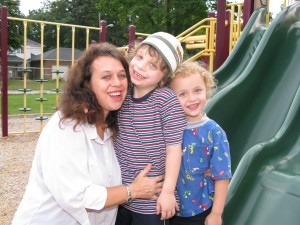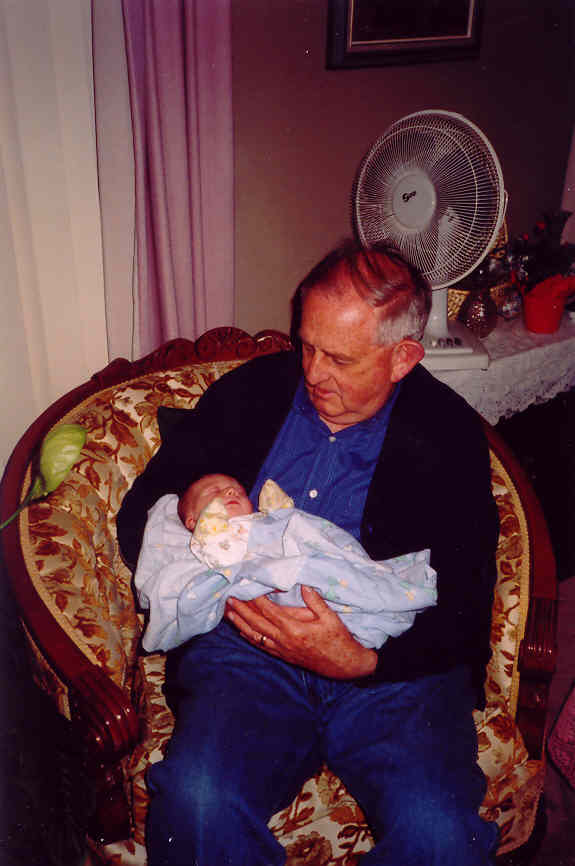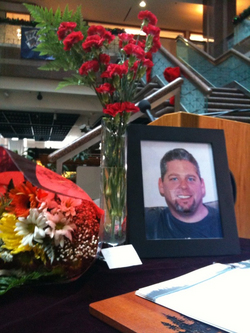This week, I am participating in the WEGO Health “Advocating for Another” carnival. Each day, there is a prompt that I answer in the form of a blog post. Although only George has the autism diagnosis, we also recognize the challenges faced by his little brother. All of my posts here this week are dedicated to him.
Today’s prompt: Challenge accepted! Parenting isn’t all sunshine and ice cream – it’s hard. Write a post that delves into 3 challenges that you face as a parent.
“That must be so hard.”
That is a common response when people find out that my son has autism. And they are right. It is hard, but not necessarily in the ways one might expect. Because as parents, we all do what we have to do. We all want the same things for our children, whether they have special needs or not. We try to keep our children safe, and for me, that sometimes means physically restraining my son to stop him from banging his head on the hardwood floor. We try to make sure they are reaching whatever potential they are capable of, and for our family, that entails intensive behavioural intervention, speech therapy, individual education plans, and navigating the special education system.
These things are challenging, and at times, heartbreaking. But I am so busy just doing what needs to be done that I don’t really give a lot of thought to the hardship factor of it all. At the end of the day, the reward is far greater than the challenge. We get the smiles, the hugs, the occasional leaps of progress that make it all worthwhile.
As full of bravado as I might sound, though, I am only human, and there are things about this whole special needs parenting gig that I wish I could be better at.
Managing the sibling connection
I often worry that James got a rough deal, being the brother of a kid with autism. So many things happen that, if I were in James’ shoes, I would be downright mad about. James, for instance, gets more timeouts than George, not only because he is more aware of what his behaviour should be like, but because George doesn’t really get discipline. I can explain to James until I’m blue in the face that the best way to punish George for bad behaviour is to simply ignore it, but how can a six-year-old be expected to understand that?
Then there are the times when James has to patiently stand by waiting for attention while I am dealing with one of George’s meltdowns. Those meltdowns, which involve George screaming in frustration and trying to bang his head on things, must be so frightening for James to see and hear. And yet this little kid waits patiently for whatever he needs, be it a cup of milk, or the answer to a question, or simply a comforting hug.
I try to make it up to James in other ways. I try to talk to him about George’s autism and what it means. There is no doubt in my mind that James adores his brother, and for the most part he seems to be happy. But I cannot help wondering just how well I am doing this parenting thing. How good a job am I doing of balancing the oft-conflicting needs of my two boys?
Managing the marital connection
When George was first diagnosed with autism just over five years ago, my doctor gave me a startling statistic. About 80% of couples who have children with special needs or chronic illnesses break up. I think that is unspeakably sad. I mean, when someone’s life is turned upside down by the reality of there being something wrong with their child, a strong spousal partnership could bring such comfort and take away that feeling of being all alone. But instead of coming closer together, many couples are ripped apart by their grief.
My husband and I both went through a process of grieving when we first discovered that George had autism. We had put together a beautiful picture of what our family life was going to be like, and in one swoop that picture was destroyed. At the time, we had no way of knowing that we would ultimately build a new picture – one very different to the original, but no less beautiful. All we knew was that we were crushed under the weight of what was going on.
Things got rough for us, but we survived. Together. We have our moments where things aren’t so great, but in the end we are partners, and we are in this together.
It can be so hard, though, to find the time and energy for one another. We are both working so hard to create the best possible lives for our boys, that sometimes we drift a little. At those times, we have to make the effort to drift towards each other.
Managing my own needs
I don’t claim to be anything special. I’m just a regular mom who happens to have a child with autism. I have a full-time job a one-hour commute away from home, I help out with my husband’s business, and I raise my kids. I cook, I clean, and I do laundry. I make sure the bills get paid and I try to get to bed at a reasonable hour each night.
I stay sane by running, and by writing. Occasionally, I even write stuff that makes sense. I love to write because it gives me a voice. I love to run because it provides a physical release from the stress, and because it gives me time to myself, to clear my head.
Here’s the thing, though: I am only one person, and no matter how well I manage my time, there are only 24 hours in one day. And when I start running out of time to do everything that needs to be done, the first thing to go is the stuff that I do for myself. Gaps start to appear in my blog. I submit archive pieces to the ezine I write for. I curtail training runs, or even – Lord forbid – cut them out altogether.
It’s as if my lowest priority in my life is myself. And I wonder if that is OK. Could those bills not be paid tomorrow instead of today? Will the world end if the laundry doesn’t get done right away? Does it matter that, once in a while, I’m grabbing something convenient from the freezer just so I can spend time taking care of myself?
I don’t know the answers. But I do think I do a reasonable job as a parent, and I am having the time of my life seeing my kids grow up.
(Photo credit: Holly Bannerman)













